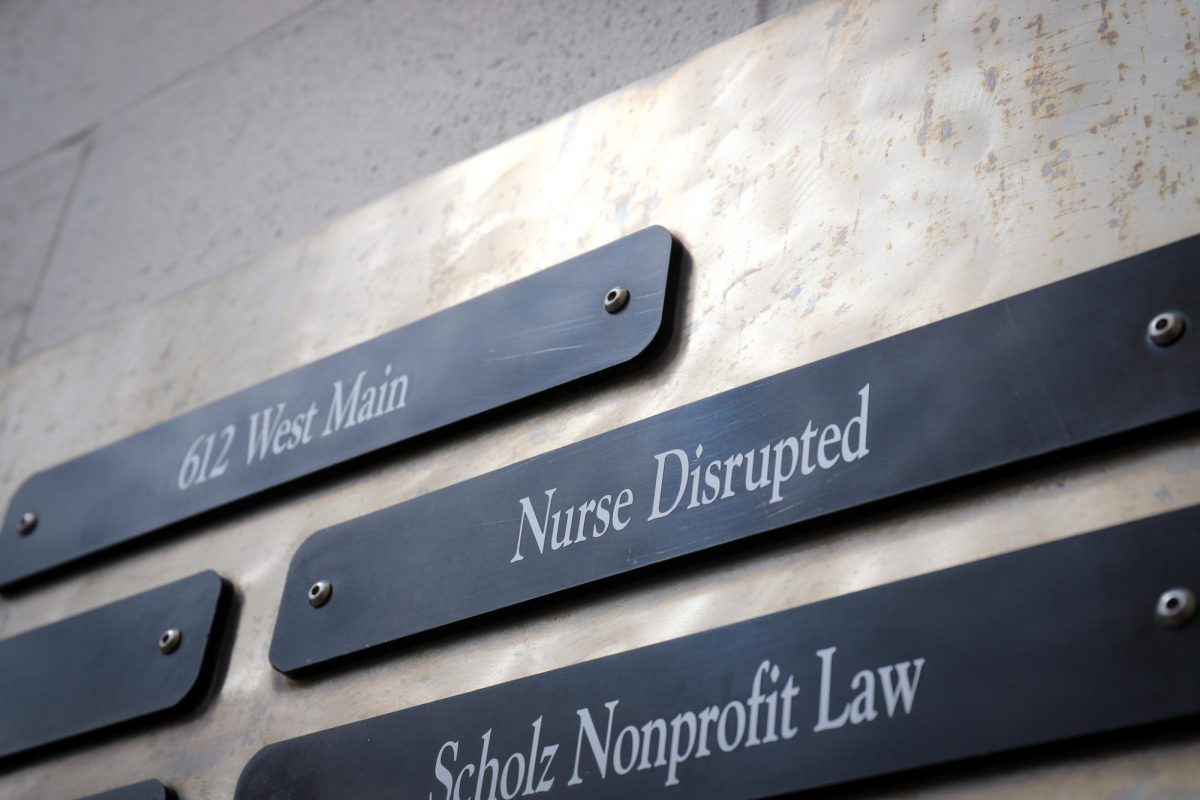In a report released by the International Council of Nurses, the shortage of nurses in the current healthcare system should be treated as a global health emergency. This shortage is detrimental to the United States healthcare system and there need to be changes and solutions to motivate nurses.
This crisis requires immediate solutions and one nurse has stepped up to implement these needed changes. Bre Loughlin, a nurse of over 20 years, created “Nurse Disrupted”, a Madison-based platform that allows nurses to work virtually, according to The Cap Times. This platform gives nurses and their affiliated hospitals the flexibility to utilize their services while giving nurses a new way to work that doesn’t overload them.
Nurse Disrupted was established in 2020 and initially aimed to provide virtual COVID-19 screenings to homeless shelters in Madison. It quickly gained national attention and in its first 22 months, prevented over 1,150 emergency department visits. According to the Nurse Disrupted website, this saved the system and its patients $2.3 million in healthcare costs.
The Nurse Disrupted app works by queuing calls to different nurses. Each nurse works different online shifts, allowing them to communicate with patients virtually. It currently consists of eight employees and recently signed with a primary healthcare system, according to The Cap Times. According to their website, the virtual nursing platform improves ROI, increases nurse satisfaction and delivers quality care to patients in acute settings.
With this cutting-edge technology, the future appears to be heading toward virtual nursing. The American Nurses Association shares that people appreciate virtual nurses because they make a diagnosis or answer a question at the press of a button. This system allows for a more functional healthcare system that saves patients and nurses valuable time and results in fewer patients in waiting rooms. This alleviates much of the burden nurses face every shift, allowing them to feel less overworked and less burnt out.
Regardless, working in the healthcare system is never an easy job and burdens come alongside it. Nursing students at the University of Wisconsin are taught this job is challenging and being overworked is part of it, but their impact supersedes the challenges. While moving to virtual can’t solve all nursing issues, eliminating some of the hardship can advance the profession in an upward direction.
According to UW School of Nursing Dean Linda Scott, the Wisconsin nursing program prioritizes community partnerships that maximize health outcomes and attempt to reduce health disparities. Scott’s words emphasize how exceptional the career is and portray it in a way that makes the burden worth it.
Loughlin’s new nursing model creates many questions and concerns, many of which are based on fear. Some have concerns that the shift to virtual care will cause people to abuse this privilege and overuse the services.
UCLA Health introduced the idea of “health anxiety,” where people spiral about their health due to what they have read online. With the internet making everything streamlined and user-friendly, people can attempt to diagnose themselves in a few clicks. This can subconsciously convince them that their symptoms are worse than they are, making seeing a virtual nurse feel essential.
This can create issues, as nurses are only given the information the patient provides. If that information comes from what they read online, this can cause a false diagnosis. This threatens the effectiveness and accuracy of online nursing.
But, the convenience and benefits this form of nursing provides are the number one priority, allowing for everything else to follow suit in time. There are bound to be issues regarding new technological ideas, but as society adapts to new norms of healthcare, worries will likely subside.
UW pre-nursing student Anna Golding said technology like virtual nursing will change the course of the profession for the better. Nursing is essential to a functioning society and because of these heroes, people stay healthy and are treated correctly and carefully.
There is still a great need for bedside nurses and no technology will ever be able to eliminate that, but this advancement in nursing will make the profession more appealing. More motivating benefits like flexible hours and less stress are tremendous incentives that will likely allow people to feel more motivated to pursue the career. This will move the healthcare system in a more positive direction and points to a brighter future for nursing careers.


